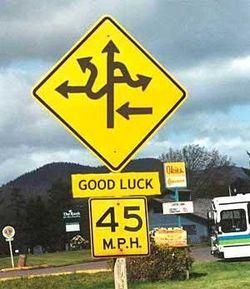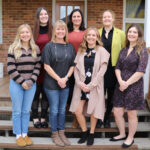EDITORIAL: Plans,plans,plans. Who's driving this city?
Plans, plans, plans. Rossland has been producing plans, planning documents and planning committees at a rapid and productive pace over the past half decade or more. Indeed, through the Visions to Actions process, the Official Community Plan, the Strategic Sustainability planning process, and the Climate Change action committee (along with several other planning exercises) several high quality documents have been created in a fantastic show of community involvement. When it comes to planning, I would have to award Rossland an ‘A’ for effort.
There is a certain comfort level that comes from planning. It’s often a magnetic force that pulls people in as we all dream about what could be, what we already have that’s great, and what we’d like our city to become down the road. Ideas come bounding out left and right through these types of planning process; kudos must go to those involved for capturing the overall sentiment of our Golden Citizens.
We now have the roadmap for the foreseeable future set in place. With these maps, Rossland could and should become an even more livable, sustainable, friendly, green and economically viable small city. All we must do now is drive the route we’ve set.
However, like those first few days back to work after a vacation, Rossland appears to be stuck in a post-planning depression. Not a depression in terms of vibrancy and economics in the city as truly there are signs of improvement and growth appearing over the past year that indicate things are moving if not very slowly in positive directions. Rather, it might be that the giddiness and excitement that comes with dreaming up big ideas has left us back in the stark reality of having to now implement them.
With our City Staff navigating, council at the wheel, 3,000 some-odd citizens cramped in as backseat drivers and our plethora of plans as our GPS navigation system, Rossland should be off and running. Things should get easier now. Right?
Unfortunately there’s an inverse relationship to excitement, planning and reality. I’d wager 90% of the excitement comes in the planning stage, while 90% of the actual work comes in the implementation. Translation? It’s hard to get people excited about doing what they’ve dreamed.
Well, this past week at council our drivers seemed to veer off of the road as chosen by the majority of residents. They decided a little off-roading was in order.
Two cases of varying degrees of divergence came through City Hall this week in which our council made decisions contrary to the OCP and Strategic Sustainability Plan.
First, there was the issue of locating Rossland Search and Rescue somewhere on City-owned land. Although our plans all point towards densification, infill and preventing sprawl, council balked at the only one of four options that fit within the OCP’s scope.
Rather than place the facility on land within the existing built-up core of Rossland (on land that is already serviced, already has parking and already has street access) council chose to lean towards the other three choices, all of which involved adding additional city services, access and building upon previously-undeveloped land.
The overriding fear in this case seemed to be potentially stalling or holding back any potential development on the Emcon lot. Looking at our recent history when it comes to new development projects, however, councilor Jill Spearn was likely right when she suggested it could be many years before anything happens on that property. Should we be delaying significant additions to our city for fear of potentially holding back a development that may or may not come to fruition somewhere down the road?
Secondly, there was the duplex rezoning issue at the corner of 5th Avenue and St. Paul.
Both the OCP and SSP state–in different words and multiple sections–the basic point that densification is a good thing for Rossland. Very simply it can raise revenues for the city without substantially raising expenses. In addition, densification continues to add to Rossland’s walk-ability, which as a side benefit, brings with it an element of community building.
Our OCP also contains language to the effect that Rossland should promote a diversity of housing inventories and price points. Presently, with a few exceptions, Rossland is a land of single family homes. When talk around town shifts towards our emerging and present issues, affordable housing almost always crops up near the top of the list. While not a silver bullet, increasing housing options and opening up lower price point accommodation is one significant way to make inroads on this issue.
This week, however, after many hours of cooperative work between city staff and the developer of the site to make the development work, City Council voted down the motion to change the bylaws that would have allowed the duplex to go forward.
It would appear that in this situation the concerns of a few trumped the common good as four immediate neighbours pleaded their case as to why they felt the duplex should not be allowed to go ahead. This seems to be a continuing issue–as acknowledged by council themselves earlier this year. They appear not to be able to stand pat on good ideas when people in opposition stand before council pleading their case.
Ultimately, the overriding goal of any politician of any governed area should be to do what is best for the common good, not what is best for a few individuals. In the case of the St. Paul duplex, this does not seem to be the case.
Issues presented of snow removal, road safety and street traffic/design as brought forward by area neighbours had all been addressed by the city’s planning department and fall into operational issues as opposed to development issues. All four speakers to the issue cited the danger in the steep road section from 5th to St. Paul. On closer look, there is only one house this section of road need affect. All others have the option of the significantly less steep left turn out to the St. Paul and 4th Ave intersection.
The one stand out comment that appeared to resonate with several councilors was Garth Flemming’s comment, ‘How much is too much?’ and his questions about how long it will be until Rossland becomes the next West Vancouver. One look at the city’s recent history of building permits would offer a pretty quick answer to that question: a long time, indeed.
There were comments made by councilors and neighbours alike that they are not against densification, just not in this neighbourhood as they didn’t’ feel it fits the character of the neighbourhood. If that is the case one might ask what other neighbourhoods do fit that character? Rossland is a relatively homogenous city of single family homes with a few exceptions.
Yet again, it would seem that, at the slightest hint of growth, several Rosslanders are jumping to the extreme worst case scenario to prevent what in reality should and could be one small positive step towards Rossland achieving the results we all set out to achieve together in our OCP.
The question ultimately comes back to how serious we are about achieving and implementing the plans we spent so much time in creating? If we’re serious, we need to get back on track and do what we can as residents in our role as part of the governance of this city.
The city staff, as navigators, guided council in what they felt was the best direction (moving forward with the new bylaw allowing the duplex with a number of design elements worked into make the development work with the neighbourhood), the back seat drivers as citizens set the long term plan in place, so why then did City council as the drivers veer off the path?
Are we going to be a city that is governed by the will of the people for the greater of the common good? Are we going to follow the plans we’ve created for Rossland and become that shining example of environmental, social and fiscal sustainability? Or are we going to cater to the desires of the few people directly impacted by these decisions and keep searching for projects that don’t fall in someone’s backyard? Ultimately, this will be a decision made by all parties involved.
Perhaps it’s time that we back-seat drivers pipe up and keep our drivers on the course we’ve all chosen.

























